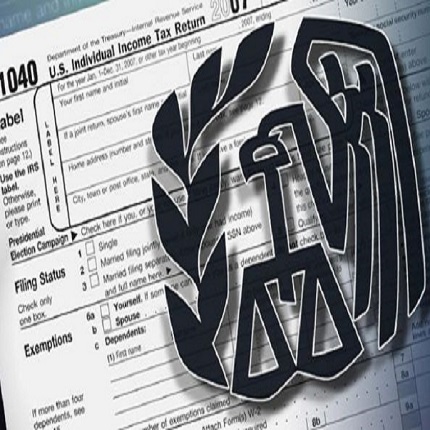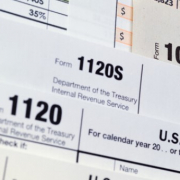Three Tax Myths You Can’t Afford To Believe
 Love ’em or hate ’em (which, let’s face it — you probably hate ’em), they’re a part of life.
Love ’em or hate ’em (which, let’s face it — you probably hate ’em), they’re a part of life.
As is the case with many financial matters, there’s lots of bad information out there within the realm of taxes.
That’s why it’s important to arm yourself with good information and the facts when tackling your tax return.
The three tax myths regarding a large tax refund, home office deduction, and claiming a business expense could seriously lead you astray. So don’t buy into them when doing your taxes.
Myth No. 1: A large tax refund is a good thing.
Many people jump for joy when they see their tax refunds hit their bank accounts. And it’s common to regard a tax refund as bonus cash — extra money you should feel free to spend as you please.
But in reality, a large tax refund isn’t a good thing. A tax refund isn’t free money. Rather, it’s money you were entitled to already based on your earnings but didn’t collect upfront.
If you’re a salaried employee, you probably notice the amount you’re paid is a post-tax number — meaning, taxes are deducted from your wages off the bat. The amount of tax you have deducted is based on the information you give to your employer on your W-4 about your tax-filing status and the number of allowances for dependents you want to claim.
The system of deducting taxes is an imperfect one. There are different factors that dictate how much money you’ll owe the IRS each year, and it’s common to withhold more tax upfront than you’re actually required to pay. That’s where refunds come in.
But to be clear, if you’re getting a refund, it means you gave the government an interest-free loan and waited to collect a chunk of your money. If you prepare your taxes and see a large refund coming your way, rather than celebrate it, take it as a sign you may need to adjust your withholding information on your W-4 to have less tax taken out of your wages going forward.
Myth No. 2: I can claim a home office deduction now that I work remotely.
Many people have been working remotely during the pandemic and have carved out dedicated space within their homes as an office. If you’re one of them, you might assume you can claim a home office deduction. But one thing you should know is that this deduction only applies to people who are self-employed. If you’re a salaried worker, you can’t claim a home office setup even if you spend your own money putting one together.
Myth No. 3: If I claim business expenses, I’ll get audited.
If you’re self-employed, you’re allowed to deduct expenses you incur in order to get your job done. And you may have been led to believe that claiming too many expenses will increase your risk of an audit.
There’s only a little truth to that. If you claim a disproportionate amount of business expenses relative to your income, then yes, it could raise a red flag — such as deducting $50,000 in business expenses against $70,000 in income. But if your business expenses are both reasonable and legitimate, then there’s no reason to think they’ll get you in trouble.
Say you’re a self-employed IT consultant who made $100,000 last year, and you spent $5,000 on equipment and $5,000 on travel to and from your clients’ various locations. Not only are those legitimate expenses, but claiming a $10,000 deduction against $100,000 of income is more than reasonable. If you have receipts to back up your deductions, there’s no reason not to claim them and get that write-off.
Source: Motley Fool




